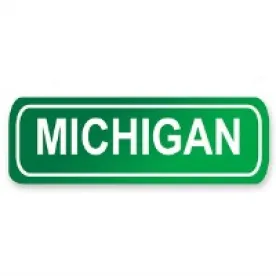In Labelle Management, Inc, LLC v Dep't of Treasury, the Michigan Court of Appeals rejected “constructive ownership” as the standard for determining the composition of a unitary group under the Michigan Business Tax (MBT). Under both the MBT and the Michigan Corporate Income Tax (CIT), to be part of a unitary group an entity must meet a control test of direct or indirect ownership of more than 50% of the ownership interests with voting rights of at least one other entity. The Department of Treasury issued guidance in which it relied upon federal “constructive ownership” rules to determine when indirect ownership occurs in Michigan Revenue Administrative Bulletins 2010-1 (for the MBT) and 2013-1 (for the CIT). Under the Department’s interpretation, entities with ownership interests of 50% or less could meet the control test and be included in a unitary group.
In Labelle, the Court of Appeals rejected the Department’s attempted reliance upon 26 USC §958, which defines “direct,” “indirect,” and “constructive” ownership for purposes of determining whether a foreign corporation is a “controlled foreign corporation” for federal income tax purposes. The Court of Appeals held that “indirect ownership” and “constructive ownership” are separate concepts. The Court consulted dictionary definitions of the term “indirect” and determined that the appropriate definition was “not done directly; conducted through intermediaries” and “possession of a thing through someone else, such as an agent.” Consistent with these definitions, the Court held “that indirect ownership in MCL 208.1117(6) means ownership through an intermediary, not ownership by operation of legal fiction, as [the Department] urges.” The Court ruled in favor of the taxpayer and found that the entities at issue did not constitute a unitary business group for MBT purposes.
The Court of Appeals decision in Labelle was published and therefore would normally be precedential and binding upon the Department. However, the Court of Appeals has issued an order staying the precedential effect of the decision pending the exhaustion of the Department of Treasury’s appeal. On June 27, 2016, the Department filed an Application for Leave to Appeal with the Michigan Supreme Court, which remains pending. If the Michigan Supreme Court denies the Department’s appeal, Labelle will be binding upon the Department. The Department recently circulated a draft Revenue Administrative Bulletin based upon Labelle in which the Department acknowledges that the holding in Labelle is applicable to both the MBT and CIT, presumably because the definition of a “unitary business group” is virtually identical for both taxes.
Action Item for Taxpayers
Any MBT or CIT taxpayers who were affected by the Department’s guidance relying upon federal “constructive ownership” rules to determine the composition of their unitary groups should review their prior filings to determine if it would be advantageous to file separate returns. If so, they should consider filing protective refund claims.


 />i
/>i

